6. Enemy of the State (1998) & Spy Game (2001)
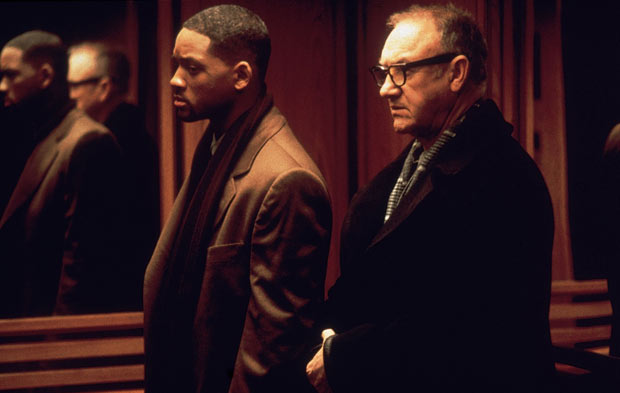
Scott made two extremely entertaining political thrillers, which complimented each other in both style and thematic concentration, and the genre don’t get much more live-wire and jacked-up than Enemy of the State, a shiny, cool-blue, lightning-fast “man-in-the-wrong-place-at-the-wrong-time” movie which served as a critical and box-office comeback for Tony Scott after the drubbing he took for The Fan.
Mixing The Conversation with shades of The Parallax View and adding in a few terrific car and foot chases with some stylish shoot-outs, Enemy of the State was the fifth collaboration between Scott and producer Jerry Bruckheimer, and marked a more dramatically serious trend for the producer (films that immediately followed included Remember the Titans, Black Hawk Down, Pearl Harbor, and Veronica Guerin).
Will Smith, fresh of the mega-success of Independence Day, was perfectly cast as a hot-shot lawyer who inadvertently comes into possession of a video showing an evil U.S. Senator (John Voight, appropriately oily) masterminding a murder. Smith teams up with a reluctant ex-CIA spook (Gene Hackman, terrific as always, doing a riff on his immortal character from The Conversation) and goes head to head with the NSA in an effort to clear his name.
The pacing of Enemy of the State is unbelievably aggressive as images and plot points are hurled at the viewer. But what’s amazing about this aggressive approach is that everything can be followed logically and coherently despite the frenetically stylish nature of the filmmaking style. Scott, working with cinematographer Daniel Mindel (a regular Scott collaborator who also shot the aesthetically groundbreaking Domino), put cameras in every corner of the room in Enemy of the State, mixing various film speeds and stocks with an overall high-contrast visual palette, resulting in a film that feels icy-hot to the touch.
The camera never stops moving, never slows down, and never gets tired; it’s energetic filmmaking to the max, especially when set to the rhythms of Harry Greggson-Williams’ pulsating musical score. By the time the film reaches its thoroughly clever finale, in which Scott even cribs from himself (True Romance, anyone?!), you can’t help but feel out of breath and exhilarated.
An adult and grown up espionage tale, Spy Game had the somewhat unfortunate event of being a CIA/spy/terrorist movie that got released one month after the 9/11 terrorist attacks. Well reviewed by critics, the film did solid box office, but has become a big player on DVD and cable (it seems to be on the tube every day).
After a mostly wordless and utterly gripping opening 10 minutes which sees Brad Pitt’s young spy character getting nabbed in China, Spy Game hurtles along at a break-neck pace, shuffling between flashbacks which establish the relationship between Pitt and his mentor, a grizzled but still suave old spook (Robert Redford), and his status as a prisoner of war in a Chinese holding cell. And for a ticking-clock additive, he’ll be executed in 48 hours in accordance with Chinese espionage laws.
The physical similarities between Pitt and Redford were clearly not lost on Scott, who photographs his leads with maximum gloss set against gritty, war-torn backdrops. Christian Wagner’s propulsive editing works perfectly with the sonic booms of Harry Greggson-Williams’ score; Spy Game is a film that never seems at rest, always on the go, from way up in the sky to the corners of a small room.
One of the film’s best scenes, other than the opening 10 minutes and a lushly photographed hotel explosion, is the clandestine conversation that Pitt and Redford have on the roof of a building somewhere in Beirut. Scott would be the only director to think of shooting a two person scene like this with a helicopter, and not only did he do it, but the results are stunning and incredibly rare.
Redford was famously annoyed by the idea and couldn’t understand why Scott was shooting coverage with a helicopter for a relatively straightforward dialogue sequence. But when he saw the finished version, apparently, he completely understood. And without spoiling the fun, of which there is a lot of in Spy Game, the ending is a real hoot; Redford’s subversion of his bosses is great to watch on repeated viewings and the final twist is sympathetic yet earned.
7. Revenge (1990)
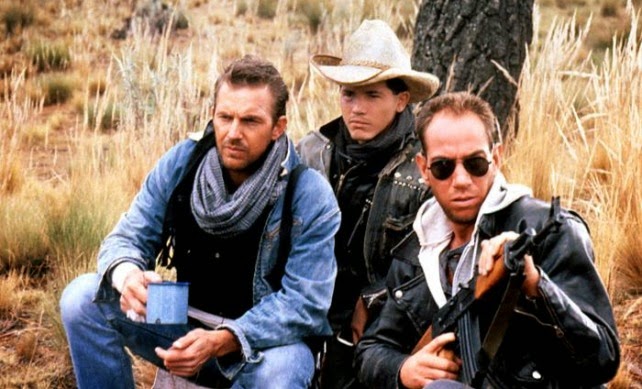
It’s awesome that Quentin Tarantino feels that Revenge is Scott’s best film, his definitive masterpiece, and while some may not feel that strongly about it, it’s still extremely effective and rather underrated in Scott’s oeuvre, a film that showed him flexing his artistic muscles, and working in the hard-boiled noir genre, an area that he only ventured into once.
Which is a shame, because Scott had this unique ability to blend narrative grittiness with a slick photographic package, always mixing formats and styles, in an effort to juice everything up for maximum impact.
Revenge was released in 1990, sandwiched in between actioners for Scott (Beverly Hills Cop II and Days of Thunder), and it represented a slower paced side to the filmmaker, a romantic movie where he went for passion and lust in a way that he hadn’t before; the sexiness here would later transfer to his work on True Romance, which feels like a cousin to Revenge in some interesting ways.
Revenge might be seen as Scott’s version of Bring Me the Head of Alfredo Garcia, and while nowhere near as nihilistic overall as Peckinpah’s alcohol-fueled nightmare of depravity, it was a distinct departure for Scott as a studio action movie stylist, his first chance with weighty material and truly adult themes.
At the time of its initial release, critics mostly panned the film, and it died at the box office. But just like all of Scott’s films, Revenge has held up wonderfully over the years, and in retrospect, it’s clear that critics were just in love with the idea of attacking Scott — and Costner in particular — for daring to make such a nasty piece of entertainment, one that stepped outside of both artists’ customary wheelhouses.
While not perfect, it’s a damn good film with lots to recommend. Based on Jim Harrison’s tough-guy novella, the film was co-scripted by Harrison himself and Jeffery Fiskin (Cutter’s Way), and centers on Costner’s subdued and constantly five ‘o clock shadowed Michael “Jay” Cochran, a retired Naval pilot who heads down to Mexico for some R&R, and shacks up with his old friend Tibby, a fantastic Anthony Quinn at his most menacing, playing a ruthless gangster running an intense criminal operation.
Immediately upon making it to Tibby’s hacienda, Jay falls head over heels for Tibby’s beautiful wife Miryea (Madeline Stowe at her hottest and in the prime of her physical beauty which Scott repeatedly emphasizes), and it’s not long before Jay and Miryea enter into a steamy, potentially deadly affair that shatters everyone’s worlds, resulting in some horrific and ugly violence that Scott didn’t shy away from, some incredibly bloody showdowns that would later become a staple of Scott’s work, and a sad finale that goes against the grain for Scott as a storyteller.
The rigors of male friendship between Jay and Tibby are explored in an in depth manner which makes all of the various transgressions all the more painful to experience; these are two men who have been friends for years, but who are torn apart over the most common of issues: The love of a woman.
Costner and Stowe have some amazing love scenes, most memorably in the lake with Stowe going topless and Scott and Jeffrey Kimball’s camera lovingly capturing her soft, radiant beauty in every single frame. And when things turn decidedly horrific in the final reel, Kimball’s unique ability to mix the graphic with the tender is in further evidence.
The collaborations between Scott and Kimball were nothing short of fantastic, and they provided a rich visual atmosphere and texture that would be emulated by directors and cinematographers for years to follow.
8. Unstoppable (2010)
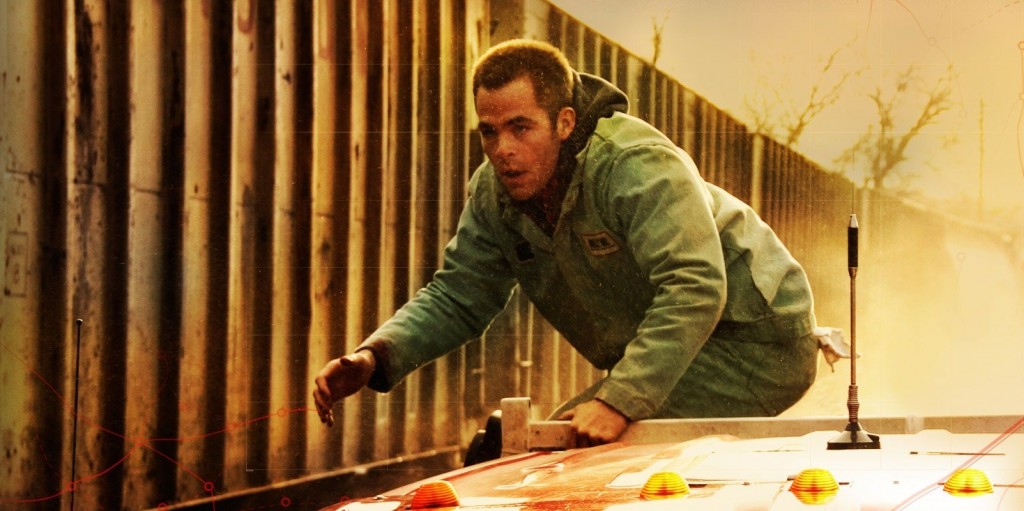
Tailor made to director Tony Scott’s aggressive and intense filmmaking sensibilities, his ferocious last action thriller Unstoppable is a wildly entertaining throwback to the mid-to-late-90’s “high-concept” actioner genre that he helped pioneer.
Sort of like Speed but refreshingly constructed without a mad-man terrorist character, the film is inspired by true events and doesn’t suffer in the slightest when it comes to a non-existent mega-villain – the runaway train at the center of the film is plenty mean and nasty.
Scott, working for the fifth time with Denzel Washington and for the first time with Chris Pine, got two meaty, manly performances from his charismatic leads, and as usual, peppered his film with a terrific supporting cast (Rosario Dawson, Kevin Dunn, Ethan Suplee, Kevin Corrigan, T.J. Miller, scene-stealer Lew Temple, and David Warshofsky all pop up in key roles) and some unexpected bits of humor.
Mark Bomback’s lean, fast-moving screenplay injects nice character beats all throughout the fast-paced narrative as opposed to front-loading the first act with nothing but background and exposition. We get to learn about the characters as the movie progresses ala a 70’s film, while Bomback and Scott pile on the near-death encounters that Washington and Pine have to contend with.
There’s also a quiet little streak of working-class anger running throughout Unstoppable when it comes to the way mega-corporations care more about their bottom line than the lives and well-being of their employees; the subversive subtext is there no matter how much it’s matched by explosions and flipping train cars.
9. The Last Boy Scout (1991)
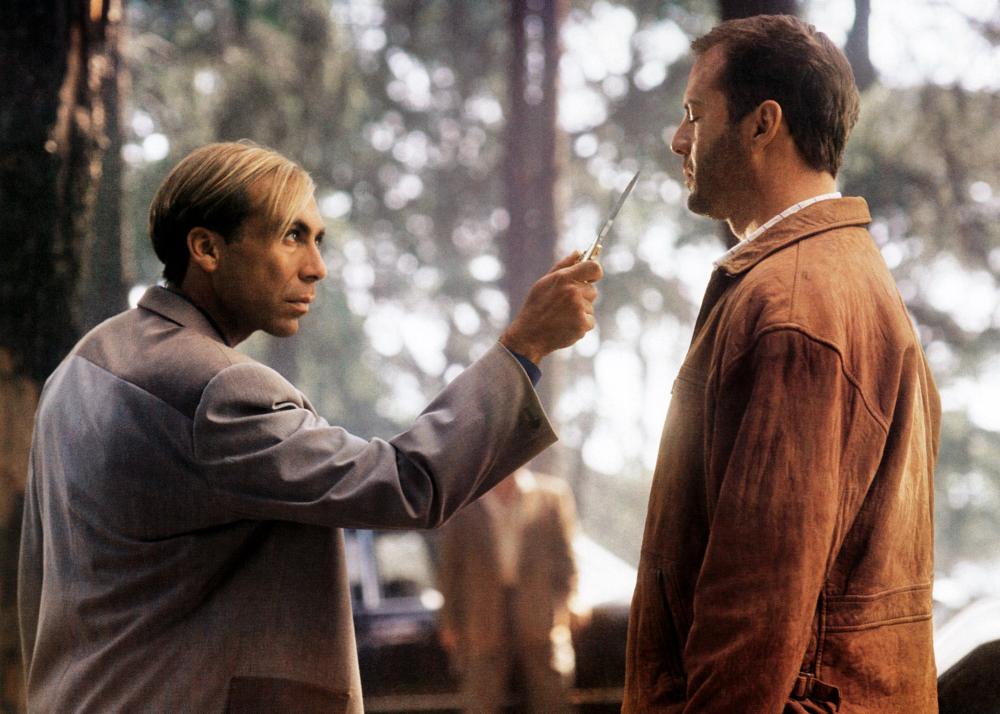
The Last Boy Scout is some sort of treatise on the entire cop-movie genre. As written by action-film specialist/deconstructionist Shane Black (Lethal Weapon, The Long Kiss Goodnight, Kiss Kiss Bang Bang), the film is like a loony tunes adventure starring Bruce Willis as an un-killable cop who just keeps coming back for more and more.
From the opening moments on the under lit, overly rain-soaked football field where a player pulls a gun out and kills his opponent, you just know this is going to be a ridiculous movie, supremely over the top and totally in love with itself.
The dark, subversive humor in Black’s writing is present right from the start, while his outlandish and insane plotting melded perfectly with Scott’s flashy and flamboyant directing sensibilities (another terrific collaboration with cinematographer Ward Russell after the exceedingly well photographed Days of Thunder).
Gratuitously violent, profane to the max, and silly as demented clown show, The Last Boy Scout is the kind of movie that the term “guilty pleasure” was created for.
10. The Hunger (1983)
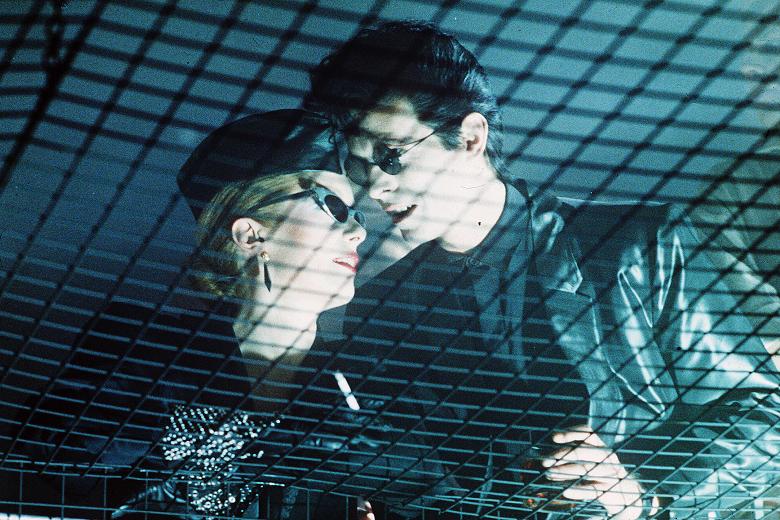
Tony Scott’s first film, The Hunger, is one of the best film debuts ever made. It presented a wholly immersive world with tons of cinematic atmosphere and style, and while potentially too artistically enamored with smoke and mirrors, it served as Scott’s calling card to larger, more mainstream studio pictures.
You get a young and sexy Susan Sarandon, 80’s-style David Bowie, lots of billowing linen curtains, soft-core lesbian sex-scenes with Sarandon and Catherine Deneuve, some vampire shenanigans, and a distinct Euro-trash vibe.
To be sure, The Hunger was a bold directorial debut, at least from a visual standpoint, taking its shopworn narrative and spicing things up on an aesthetic level. Graduating from the world of commercials, Scott brought a quick-pace and luxurious sheen to his first feature film, style traits that would follow him his entire career.
Despite weak reviews and non-existent box office, the film has attained healthy cult-classic status since its VHS/DVD release, and it even spawned a short-lived Showtime series spin-off, of which Scott directed the pilot.
Author Bio: After spending close to a decade working in Hollywood for the likes of Jerry Bruckheimer, Tony and Ridley Scott, and Gary Ross, Nick Clement has taken his passion for film and transitioned into a blogger and amateur reviewer. Some of his favorite filmmakers include Michael Mann, Martin Scorsese, Tony Scott, Steven Soderbergh, Werner Herzog, Terrence Malick, and Billy Wilder, while favorite films include The Tree of Life, Goodfellas, Heat, Back to the Future, Fitzcarraldo, Schizopolis, The Counselor, and Enter the Void. His latest venture, Podcasting Them Softly, finds him tackling new ground as an entertainment guru, with a focus on filmmaker interviews and written analysis.